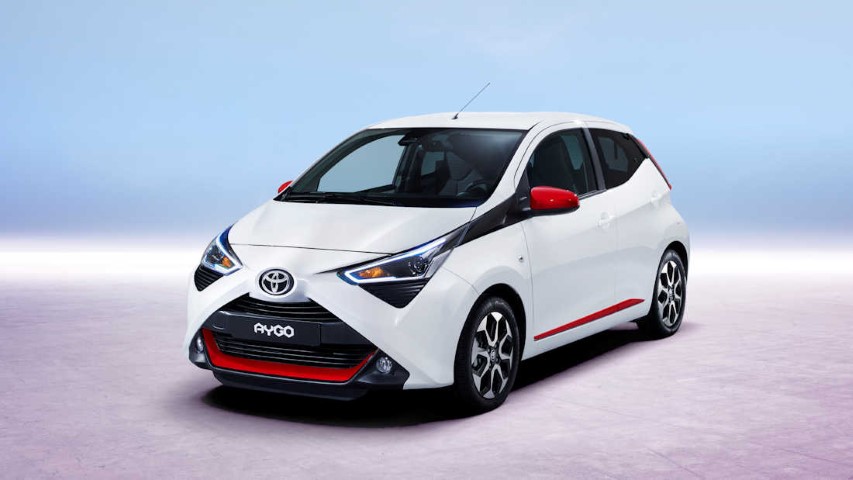 As a young adult preparing for college life, or you’re already in college and need a car to move around with, you must settle for a safe, efficient, dependable and affordable car. Higher education costs are already incredibly high, and adding a car may further exacerbate your student debt. However, for some students, it’s a necessity or a requirement. While some students want to enjoy the freedom and mobility that owning a personal vehicle with on-demand access provides. Here are some important things to remember when shopping for Cars for College Students.
As a young adult preparing for college life, or you’re already in college and need a car to move around with, you must settle for a safe, efficient, dependable and affordable car. Higher education costs are already incredibly high, and adding a car may further exacerbate your student debt. However, for some students, it’s a necessity or a requirement. While some students want to enjoy the freedom and mobility that owning a personal vehicle with on-demand access provides. Here are some important things to remember when shopping for Cars for College Students.
Finding the best student-friendly cars
You must keep several factors in mind when looking for a college or student-friendly car. These factors may contribute to the overall car ownership costs and can also vary significantly across models:
Sticker cost
If you’re budget-conscious, this is one of the first factors you must consider when shopping cars for college students, whether you’re buying a new or used car. Generally, new subcompact and compact cars with limited options cost $10,000 to $25,000 in the US. Sometimes, midsize cars are usually between $20,000 to $35,000 or more. While full-size cars, including crossovers and compact SUVs, typically start from $25,000 upwards.
While luxury brands are usually more expensive, some entry-level luxury cars may be available for around $40,000 or less. For instance, a new Acura compact can cost around $20,000, and an entry-level BMW may cost around $30,000.
These ranges can change with new cars becoming more sophisticated and expensive. The price of used vehicles varies greatly and ranges from 80 – 100% of new vehicle MSRP to 10 – 20%. Make sure to consider the vehicle’s age, model, accident history, and condition and whether you’re purchasing from a private seller or dealership. These are factors influencing used vehicle prices.
Financing options
College students often don’t have enough to pay the full price for a car they want. People with willing parents or substantial savings may afford to pay a down payment for the car or a large share of the purchasing cost.
In the absence of potential issues, the best thing to do is to pay as much as you can upfront. This is because car loan interest charges may add significantly to the total lifetime ownership cost. So you must also know how to negotiate an auto loan.
Efficiency ratings
Efficiency is an important characteristics with cars for college students in all areas. This is why they’re always in need of college essay writers for hire, so they can save time and money. It’s the same factor with buying a car too as a college student. Over time, the price of gas fluctuates. Whenever the prices rise, people who own fuel-efficient cars are going to benefit greatly from the efficiency of their vehicles. However, the difference isn’t pronounced when gas prices are low. However, filling up a fuel-efficient car is usually cheaper than a gas guzzler. So, when searching for the ideal student-friendly car, you must look closely at the EPA mileage ratings.
Also, efficiency can be a critical factor, not only for budgetary and environmental reasons. Hence, you should also consider the increasingly growing number of plug-in hybrid and electric vehicles as they offer more efficiency than first-generation hybrid and gas-only vehicles.
Safety ratings
Safety is a priority for all classes of buyers. Many new cars, especially those with budget-breaking prices, often include safety features that may save your life, such as a lane drift warning system and emergency braking. These higher-end vehicles get new safety features almost every year, and this finds its way down to the cheaper and more affordable options as time goes on. If safety is the biggest priority or consideration for you, then you should consider buying a new vehicle, and you should also expect to be charged a premium fee.
Taxes and fees
There are several levies on vehicle owners, such as registration fees, title fees, and annual vehicle taxes, and these levies vary from state to state. When buying a vehicle at first, the dealer often adds the initial registration fee, and title fee to the final price and the paperwork is handled by the dealer. However, when buying a used car, you don’t have the same leverage. Unlike when you pay college essay writers to help with all your essays with guarantees of high grades, you must complete this step by yourself. All paperworks and applicable fees must be paid by you. Generally, vehicle taxes and fees are proportional to their assessed value. Hence, recurring taxes will likely reduce significantly for used vehicles with time.
Size and maneuverability

If you’re attending an urban university or college where garage parking or street parking is very scarce, you don’t need a full-size SUV or pickup truck. A more likely choice can be a hatchback or compact sedan. On the other hand, you can consider getting a heavier or larger vehicle if your school is in a rural area or small town and you frequently drive in the snow, haul and tow things, or go off-road. While larger vehicles are more expensive, you can also find used SUVs and trucks at discount prices.
Conclusion
If you don’t spend the bulk of your money on your assignments, then you may be able to save some to get a car. However, before doing so, this article discusses some of the factors you should consider.










